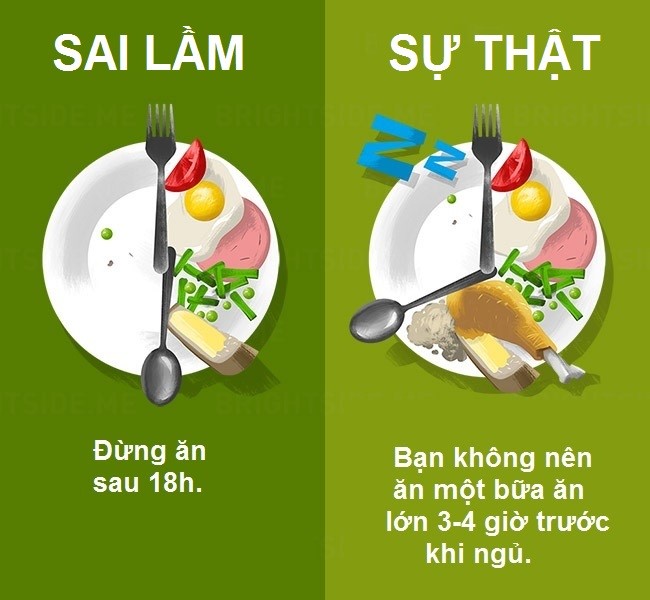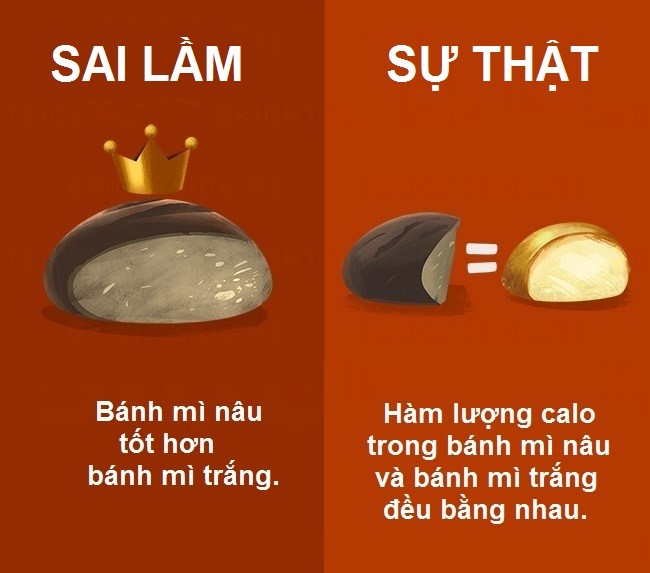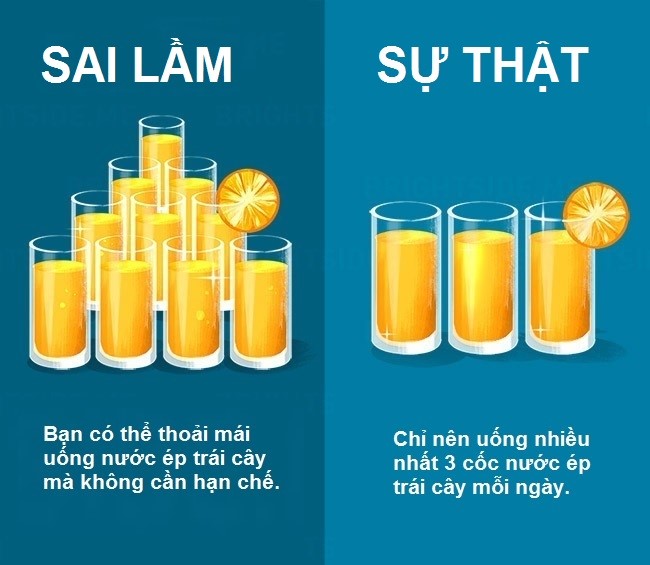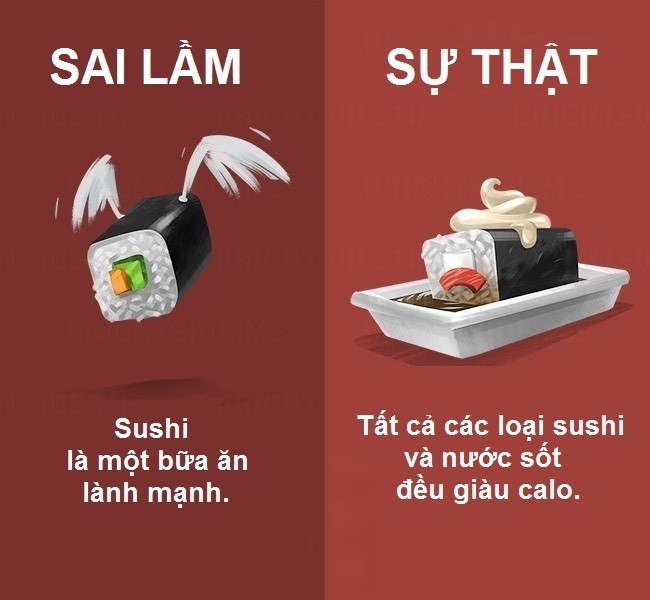15 misconceptions about eating you should not believe
There are many concepts about food and diet that people refer to and apply. However, not all of these concepts are true.

According to Spark People, it is common for people to not eat after 18 hours to limit weight gain.What to eat and how much to eat is actually more important than when eating.It is best to stop eating about 3 hours before going to bed with a moderate meal.Going to bed with a full stomach can prevent your body from resting, but you still have to work on handling food, even indigestion, flatulence and weight gain.

Brown bread doesn't have too much unnecessary fiber.The "healthy" brown color may be from caramel in the dough so the energy contained in brown bread is similar to white bread.

Fruit juice contains a lot of sugar, so you should not drink too much.Experts recommend that you drink at most 3 glasses of fruit juice a day, just enough to help cool your body and promote fruit's effect.

According to Independent, sushi has raw materials such as raw fish, white rice rice, rich in refined carbs, so it takes a lot of time to digest, leading to increased blood sugar, making you crave more food.In addition, sushi is often served with sauces containing sugar, calories and salt, not good for health.

Some studies show that eating an appropriate amount of dark chocolate every day is very beneficial for human health such as reducing the risk of cardiovascular disease, appetite control . However, you should only eat chocolate moderately because it contains saturated fat and high calorie content, eating too much will harm the body.

Some people think that the less you eat, the less calories you consume, thereby increasing your weight loss.In theory, this may seem true, but in fact, it has the opposite effect.When eating less, the body for a long time will be undernourished and will gradually break the eating rule, consuming anything to compensate for energy.As a result, you eat more.So, you can divide it into 5-6 meals a day, each meal 3-4 hours apart to control hunger and help your body digest food more easily.

According to the New York Times, the amount of water each person really needs is not exactly the same, they are based on the activity you participate in every day, weight, environment (temperature and humidity) and many other conditions.In fact, the human body has the function of signaling when you need to drink water before you actually become dehydrated.Unless you want, don't drink water if you're not thirsty.

Not all fats are harmful.Fat is an essential part of the diet, containing vitamins and nutrients to maintain health.Moreover, good fats are definitely fat-storing genes and turning on fat burns.The best way to promote the effect of fat is to eat moderately.

Olive oil contains beneficial fats and nutrients, but like many other oils, olive oil is high in calories, making it easy to gain weight.Therefore, you should not use too much olive oil when preparing food.

Carbs are an important source of fuel for the body to burn fat effectively.Instead of giving up carbs in your daily diet, you should consume good carbs such as whole grains, vegetables, beans, brown rice, oats . and limit unhealthy carbs like processed foods and snacks. sweet, carbonated drinks .

According to Fit Day, the difference between these two sugars is brown sugar containing molasses, but the nutrient content between these two types is basically no different.Moreover, like white sugar, brown sugar is also rich in sugar, contains many calories, so you should limit them to a daily diet to avoid weight gain and risk of chronic dangerous diseases.

Eating fruits during or immediately after a meal can cause stomach irritation, indigestion, bloating.Therefore, you should only eat fruits such as snacks in the morning or afternoon snack.

According to nutrition experts, the best breakfast is a protein-rich breakfast, combining evenly with fat and healthy carbs to provide energy for a long day.If you eat the wrong food at breakfast, your body will be tired and not have enough energy to work.

Many people think that to burn calories consumed only the way to exercise.However, this method is not safe, can even cause exhaustion, trauma . You should remember, the body works and burns calories continuously throughout the day by the way you move, walk, stand, even when sleeping.The body's metabolic processes can burn 1,200 - 1,500 calories a day without exercise.

A report by the British Dietetic Association says nutrition from vegetables will help the body work more efficiently.Fruits often contain high levels of natural sugar, if eaten too much will increase blood sugar, causing fatigue, irritability.The best nutrition experts for a day include 4 servings of vegetables + 1 part of fruit.
- 3 misconceptions in eating many people suffer
- Eating and drinking habits are right and wrong
- Misconceptions about eating with people with liver disease
- Scientific truth about misconceptions everyone believes
- 10 misconceptions that you often mistake when exercising
- 5 Abstain taboo of people with cancer
- What is the harm of eating sweet food and how to quit this bad habit?
- The misconception of the Middle Ages makes you laugh!
- The concept of 'weird' about the female body
- Completely false thoughts about eating, sleeping, resting (part 1)
- The odd misconceptions in science
- Revealing the notions of
 Soaking vegetables in salt water does not remove chemicals but you should still do it
Soaking vegetables in salt water does not remove chemicals but you should still do it You should limit bamboo shoots if you have 1 in 5 of these diseases
You should limit bamboo shoots if you have 1 in 5 of these diseases Mistakes when soaking vegetables in salt water
Mistakes when soaking vegetables in salt water Risk of death when combining shrimp with vitamin C
Risk of death when combining shrimp with vitamin C